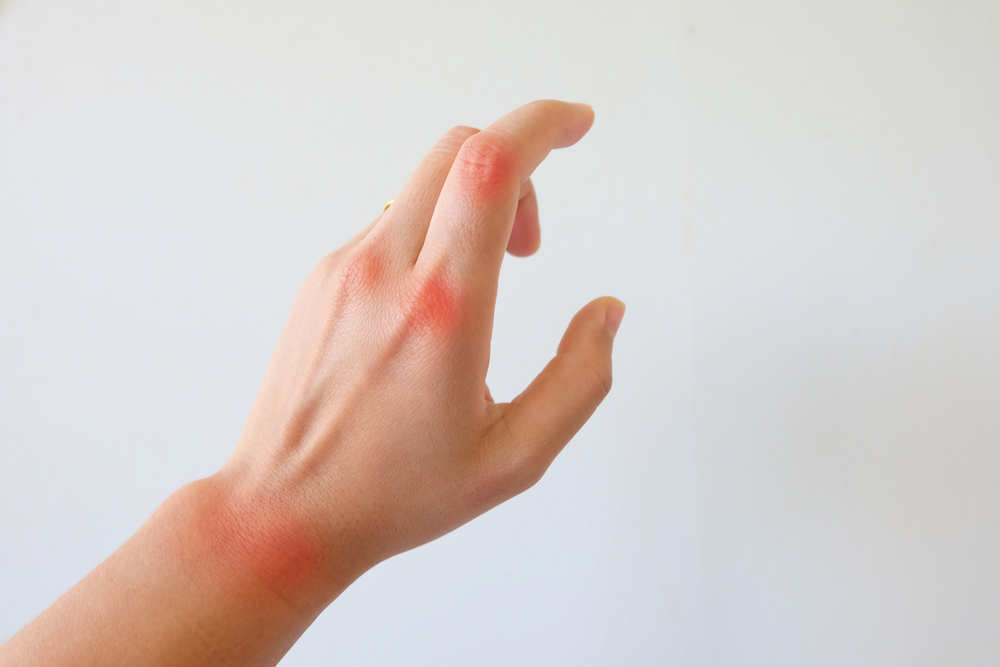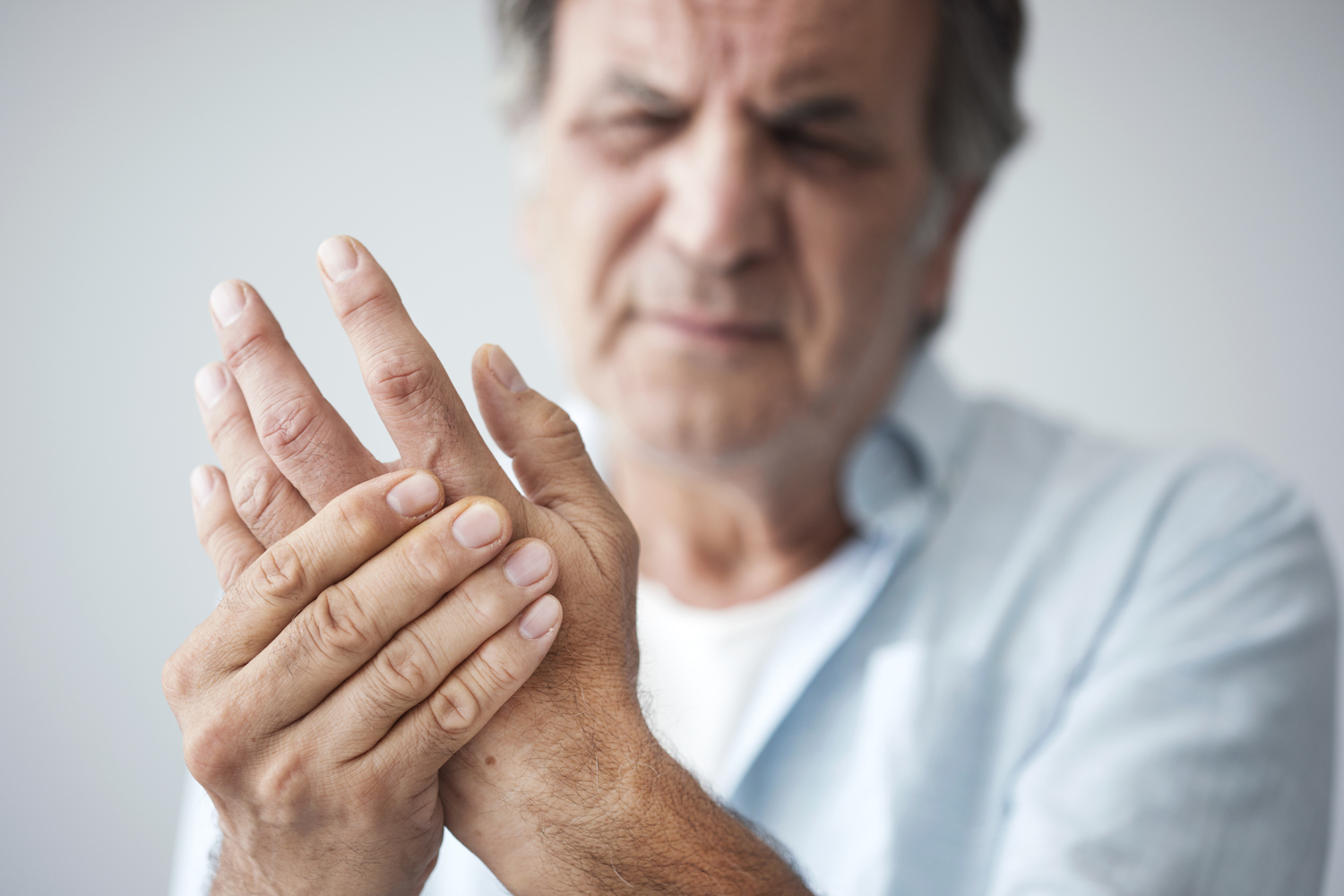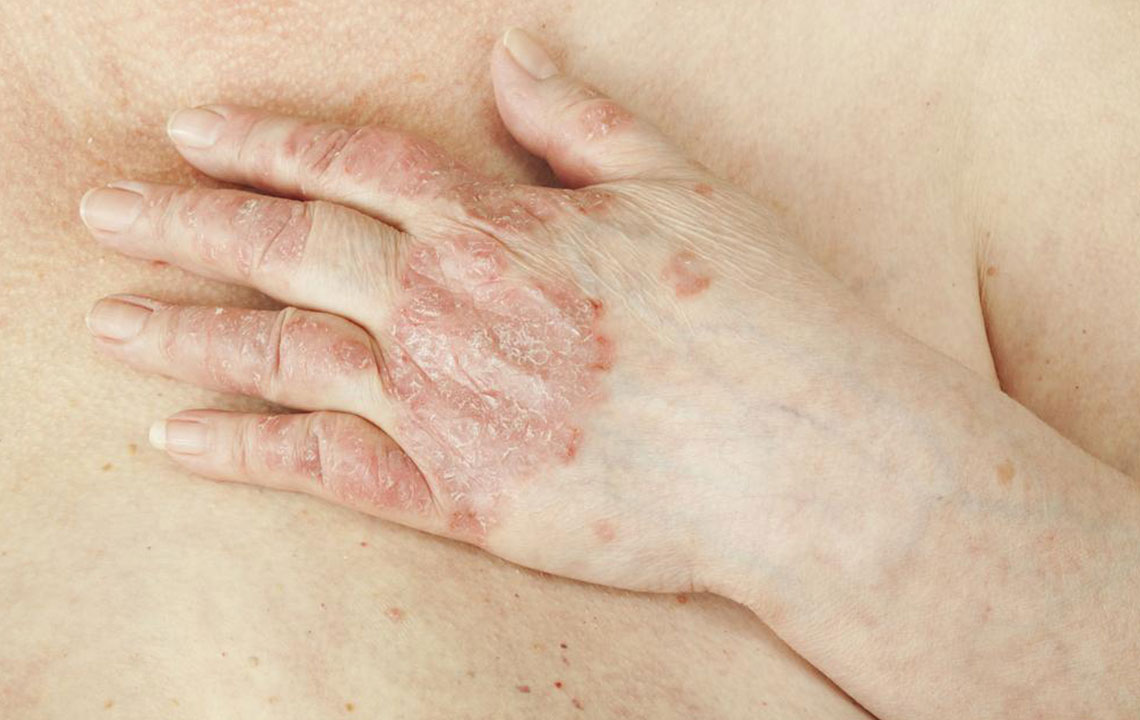Here’s How You Should Deal With Psoriatic Arthritis
Here’s how you should deal with psoriatic arthritis
Psoriasis is an autoimmune disease that affects the skin in the form of itchy and patchy rashes. It is estimated that about 30% of the patients suffering from this chronic disorder have developed psoriatic arthritis, which affects the body joints by causing pain, stiffness, and swelling. It can occur in any part of the body such as fingers, elbows, knees, spine, etc.

Read on to know more about psoriatic arthritis.
What are the symptoms of psoriatic arthritis?
The symptoms of psoriatic arthritis vary for every person. Since they are more or less similar to other types of inflammatory arthritis, they can be difficult to self-diagnose. Although, in the later stages the signs become quite evident. Here are some of the common symptoms of psoriatic arthritis –
- Inflamed fingers and toes that appear like sausages
- Indented nails
- Aggravation of psoriasis in the form of thickened, reddened skin
- Joint stiffness
- Inflammation and pain in the joints
- Enthesitis, i.e., discomfort and tenderness in the area where the tendons connect to the bone
- Tiredness
- Problems in the eyes such as soreness, irritation, blurry vision, etc.
What are the causes of psoriatic arthritis?
The primary cause for the onset of this type of inflammatory arthritis is having psoriasis itself. The cause of this autoimmune disease is not entirely known. This means that we are still unaware why the body’s immune system attacks the healthy cells. Any individual is prone to developing psoriasis but adults who are between the age frame of 30 to 50 years are more vulnerable to it.
What kinds of treatments are available for psoriatic arthritis?
There are several forms of medical psoriatic arthritis treatments that are used to minimize and control the bothersome symptoms. Depending on the severity of the situation your doctor will design a suitable treatment course.
- NSAIDs – Nonsteroidal anti-inflammatory drugs can be taken orally as well as can be directly applied to the skin. This type of psoriatic arthritis treatments aids in reducing ache and swelling. There is a range of drugs which are available as prescription and over-the-counter medications.
- Topical application – Several topical products can be applied to the skin areas affected by psoriasis. These will assuage itching, inflammation, and redness. You can find them in the form of shampoos, creams, gels, sprays or ointments. Some of these are prescription, and while others are sold as OTC drugs.
- Corticosteroids – These come in the form of oral pills and injections for joints. They are known to reduce tenderness.
- DMARDs – Disease-modifying antirheumatic drugs are used in several arthritis cases to control soreness and joint damage. It obstructs enzymes that are associated with inflammation.
- Light therapy – The light therapy involves exposing the skin to ultraviolet light. However, this should be only done under the supervision of a medical professional.
Remember that any form prescription drug must be taken under doctor’s guidance. Similarly, for OTC drugs, you can seek the counsel of your doctor if you seem unsure about the dosage patterns.
What are the natural treatments for psoriatic arthritis?
Apart from psoriatic arthritis treatments, to handle this chronic condition well you have to take an active part in the entire process. Here are some natural remedies which you can use to alleviate the discomfort triggered due by psoriatic arthritis.
- Healthy diet – A diet regime for a patient who has psoriatic arthritis should be packed with anti-inflammatory foods. The intake of refined sugar and saturated fats should be considerably reduced too, as they are known to aggravate the condition. Likewise, ensure that you consume elements like alcohol in moderation.
- Stress management – Often excessive stress can intensify psoriatic arthritis. Therefore, regularly take care of both, the mind and body by pursuing activities like low-impact workouts, meditation, yoga, etc. If you wish you can also join a support group to share and listen to experiences. Also, completely cut down on smoking, as it increases the inflammation levels in the body.
- Nurture the skin – Only wear loose fitting clothes made of cotton or linen, which will help your skin to breathe and relax. Avoid using chemical based soaps and shampoos. In the same way, use good and organic moisturizers to keep the skin itch-free and hydrated.




